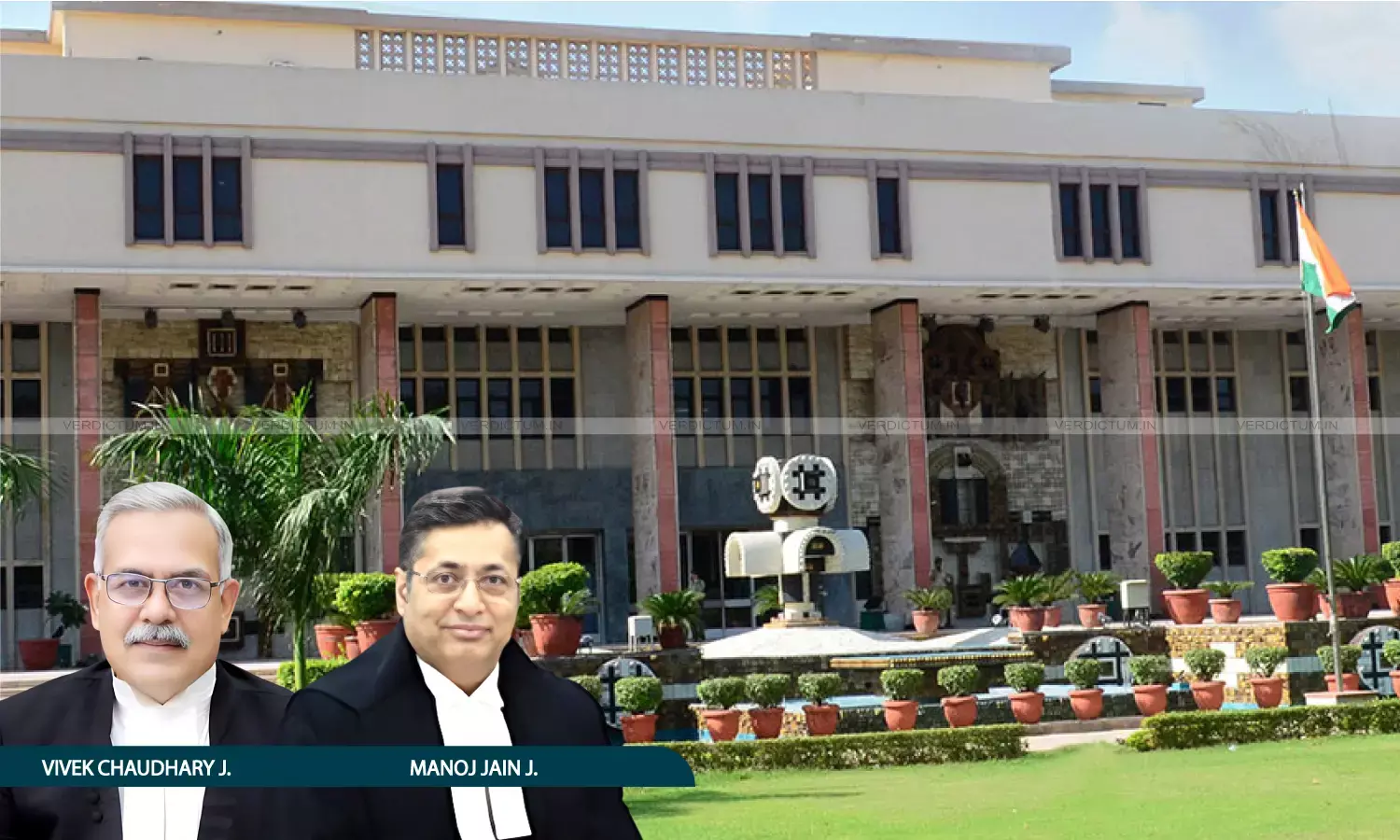Testimony Of Prosecutrix Must Be Credible And Not Contrary To Logic: Delhi High Court Acquits POCSO Accused
The High Court reiterated that while the testimony of a prosecutrix in rape cases deserves predominant consideration, it cannot be accepted unquestioningly when it appears improbable, inconsistent, or contrary to logic and the established principles governing criminal evidence.

The Delhi High Court acquitted a man who had been sentenced to life imprisonment under Section 4 of the Protection of Children from Sexual Offences Act, 2012, while stating that the testimony of the prosecutrix did not inspire confidence to sustain the conviction.
The Court was hearing a criminal appeal filed by the accused challenging his conviction, questioning the findings of the trial court on the age of the prosecutrix, the issue of consent, and the credibility of the prosecution's evidence.
A Bench comprising Justice Vivek Chaudhary and Justice Manoj Jain, while acquitting the accused, reiterated that “though it was true that in a case of rape the evidence of the prosecutrix must be given predominant consideration, but to hold that such evidence had to be accepted even if the story was improbable and belied logic, would be doing violence to the very principles which govern the appreciation of evidence in a criminal matter.”
Advocate Anwesh Madhukar appeared for the appellant, while Advocate Ritesh Kumar Bahri, APP, and Advocate Inderjeet Sidhu appeared for the victim.
Background
As per the prosecution, a case was registered by the father of the prosecutrix, alleging that the accused had taken her away without consent and later committed sexual assault. Following recovery, her statement was recorded, and she was subjected to medical examination.
The trial court, upon examining the evidence, convicted the accused and sentenced him to life imprisonment under Section 4 of the POCSO Act, in addition to concurrent sentences for kidnapping and rape under the IPC.
In appeal, the accused contended that the trial court had erred in determining the prosecutrix’s age, relying only on school records unsupported by official birth or hospital certificates. It was further argued that the ossification test indicated her age to be above seventeen years and that the relationship was consensual, not one involving coercion.
Court’s Observation
The Delhi High Court, at the outset, addressed the question of the prosecutrix’s age and held that the school certificate produced to prove her minority was not supported by any contemporaneous record. The Bench observed that the trial court had incorrectly disregarded the ossification report, which indicated the prosecutrix was between seventeen and eighteen years of age, stating that “such approach was not appropriate from any angle whatsoever.”
Referring to Court on its Own Motion v. State of NCT of Delhi, the Bench reiterated that while determining age through ossification tests, the upper limit of the range and a two-year margin of error must be considered, and applying that principle, the prosecutrix was found to be a major at the relevant time.
Further, while examining the question of consent, the Court found material contradictions in the prosecutrix’s statements before the police, the magistrate, and the trial court. It noted that her claim of being forcibly taken and confined was not corroborated by the surrounding circumstances. The Bench observed that the prosecutrix had travelled long distances with the accused, used public transport, and did not raise an alarm despite multiple opportunities to do so.
The Bench emphasised that the record of an NGO, which had independently recorded the statements of the prosecutrix, reflected that she had been acquainted with the accused for several months and had voluntarily spent time together.
The Court further referred to Rajak Mohammad v. State of Himachal Pradesh (2018), where the Supreme Court held that the possibility of consent could not be ruled out when the prosecutrix had accompanied the accused voluntarily and did not complain to anyone despite having several opportunities.
After reviewing the evidence, the Court observed that “the cumulative impact of the material brought on record suggests that there was no act of kidnapping or abduction in a forcible manner”, holding that “when the age is doubtful and the conduct of the prosecutrix indicates voluntary participation, it would be unsafe to hold the act as non-consensual.”
Conclusion
Concluding that the prosecution had failed to establish guilt beyond a reasonable doubt, the Court found that the trial court’s conviction was based on a misappreciation of facts and law.
Accordingly, the conviction and sentence imposed upon the appellant were set aside, and he was acquitted of all charges. The Court directed that he be released forthwith if not required in any other case, upon furnishing a bond as required under Section 481 of the Bharatiya Nagarik Suraksha Sanhita, 2023.
Cause Title: Raju v. State GNCT of Delhi (Neutral Citation: 2025:DHC:8935-DB)
Appellant: Advocates Anwesh Madhukar, DHCLSC, Ishat Singh Bhati, Prachi Nirwan, and Gaurav Chahal
Respondents: Ritesh Kumar Bahri, APP with Advocates Vinesh Kumar, Inderjeet Sidhu, DHCLSC, Lalit Chaudhary and A. Atri


